Television - IELTS Speaking Part 1 Sample Answers
6 min read
Updated On
-
Copy link
Discover common IELTS Speaking Part 1 topics like 'Television' and learn effective strategies to boost your vocabulary, fluency, and coherence. Gain insights from sample answers and vocabulary tips to confidently prepare for the IELTS exam.
Table of Contents

Limited-Time Offer : Access a FREE 10-Day IELTS Study Plan!
One of the most common topics in the IELTS Speaking Section is ‘Television'. In this section, you will be asked questions about your daily routines, habits, and usage of the television in daily life. Since this is a very familiar topic, it allows you to speak fluently which helps in showcasing a wide range of lexical knowledge. With the steps to brainstorm ideas and the right vocabulary, you can ace the IELTS Speaking Section with a band 8+. Therefore, let’s check out more about the topic and take a step closer to success!
Connect with our IELTS Experts to crack your IELTS Speaking and ace the exam with a band 8+! Book a Free Demo.
Steps to Answer IELTS Speaking Part 1 Questions on ‘Television’
In IELTS Speaking Part 1, you need to provide short and to the point answers, which should be spontaneous instead of rehearsed or memorized. Since there is no time to prepare, you need to give straight answers with a clear reason or detail and also include a brief example. The table below suggests the step-by-step process which you can incorporate into your preparation.
|
Step |
Description |
Example |
|
1. Determine the keywords |
|
Q: “Do you watch TV often?” Here, the emphasis is on frequency. |
|
2. Respond Clearly |
|
Q: “Do you watch TV often?” A: “Yes, quite often.” |
|
3. Give Specific Information |
|
“Usually around 30–40 minutes in the evenings.” |
|
4. Explain More About The Reason |
|
“I watch TV to relax after a busy day.” |
|
5. Give Personal Example |
|
“I enjoy nature documentaries and light comedies.” |
|
6. Use Relevant Terms |
|
streaming platforms, binge-watch, sitcoms, live sports, series finale |
|
7. Maintain Casual Tone |
|
“To be honest, generally, I’d say…” |
Want to learn how to score a band 9 in the IELTS Speaking Section? Check out the video below!
Television IELTS Speaking Part 1 Questions
Now that you understand the basic format of IELTS Speaking Part 1, let’s focus on the important sections. When you speak, you use the appropriate tone to elaborate and communicate, which helps you to get a better IELTS Band Score. For the topic ‘Television’ you will be asked the following questions.
1 Do you often watch TV?
I actually prefer watching TV to surfing the Internet due to its selectivity and accessibility. Because the audience can be children, teenagers and families, the content of TV programs is examined carefully and a suitable time frame is arranged in order to avoid having negative impacts on them.
2 What’s your favourite TV programme?
Definitely music channels such as MTV or V-channel. These channels offer a wide variety of music everyday. In addition, they also interact with their audience by allowing them to vote for the Top 20 songs of each week or to play the songs they requested.
3 What types of TV programme are popular in your country?
In my country these days reality shows and comedy shows are among the most popular TV programs. I guess it’s because its content is suitable for audiences of any age from children to the elderly. The fans of reality shows feel interactive and familiar with the competitors while those of comedy shows generally want to be entertained with jokes and laughter.
4 Do you ever watch foreign programs or films?
I definitely did enjoy quite a lot of shows and programs, from music, movies, fashion, news and scientific documentaries since the foreign are so good at visual editing and content management. Most of them are in English because I’m more familiar with this language compared to French or Japanese.
5 What (types of) programmes did you watch when you were a child?
Like other children, I watched a number of cartoons and music programs for children when I was a child. Tom and Jerry, Barbie, and the Disney series are my favorites which still get me excited whenever I see them on TV now. My mom said I was also attracted to music programs for children that I focused on them completely while eating.
6 Do you think television has changed in the past few decades?/ (Possibly) Do you think television has changed since you were a child?
Televisions indeed have been changing remarkably for the past few years. The technology has become so innovative and competitive to meet the customers’ high demand on entertainment. The variety of TV programs is no longer limited to national level but has reached to a number of foreign countries; and is significantly diversifying in content for audience preference.
7 Has television changed your life in any way?
I think watching TV has become a habit that I would hardly change. My family always watches the news while having dinner together. Personally, I’d love watching TV for relaxing after studying as well as keeping myself updated on showbiz, music, movies, landscape discoveries and fields of science. Thus as long as I do not become a couch potato, TV has always played an important role in my life, making my life more colorful and opening in front of my eyes the places I’ve never been to.
Grab the Comprehensive IELTS Speaking Band 8 Preparation Course to access the sample band 9 answer scripts and band 9 vocabulary related to specific topics!
Television IELTS Speaking Part 1 Vocabulary
In order to improve your speaking skills, you need to include certain specific IELTS Vocabulary words. Let’s consider the relevant words that you can include for the topic ‘Television’ to boost your band score for lexical resources.
-
Selectivity : The characteristic of being particular about what is chosen or included.
Eg : Because of its selectivity, TV ensures all-age-appropriate content that I find preferable.
-
Couch potato : a person who is addicted to watching TV
Eg : He is such a couch potato that he lays on the sofa, watching his favourite series the whole day.
-
Accessibility : The ease with which something may be reached or used.
Eg : Television has accessibility, allowing everyone to enjoy their favorite programs.
-
Remarkable : Exceptional and worthy of attention.
Eg : The advancements in the technology of TV are, indeed, remarkable.
-
Keep Updated : Being informed about the latest happenings.
Eg : For the latest in showbiz, music, and science, I watch television to keep updated with the news.
Enroll into our Free IELTS Webinar and learn more about techniques to improve your speaking skills to achieve a band 8+.
While understanding how the Speaking Section in the IELTS Exam works, familiarizing yourself with different questions is crucial. Remember that your fluency and logical organisation of ideas is a big step towards success. By practising on different topics, this will not only enhance your speaking skills but also make you get ready for the actual exam day.
Related Cue Cards:
Also Check:

Start Preparing for IELTS: Get Your 10-Day Study Plan Today!
Explore other Speaking Part 1 Topics
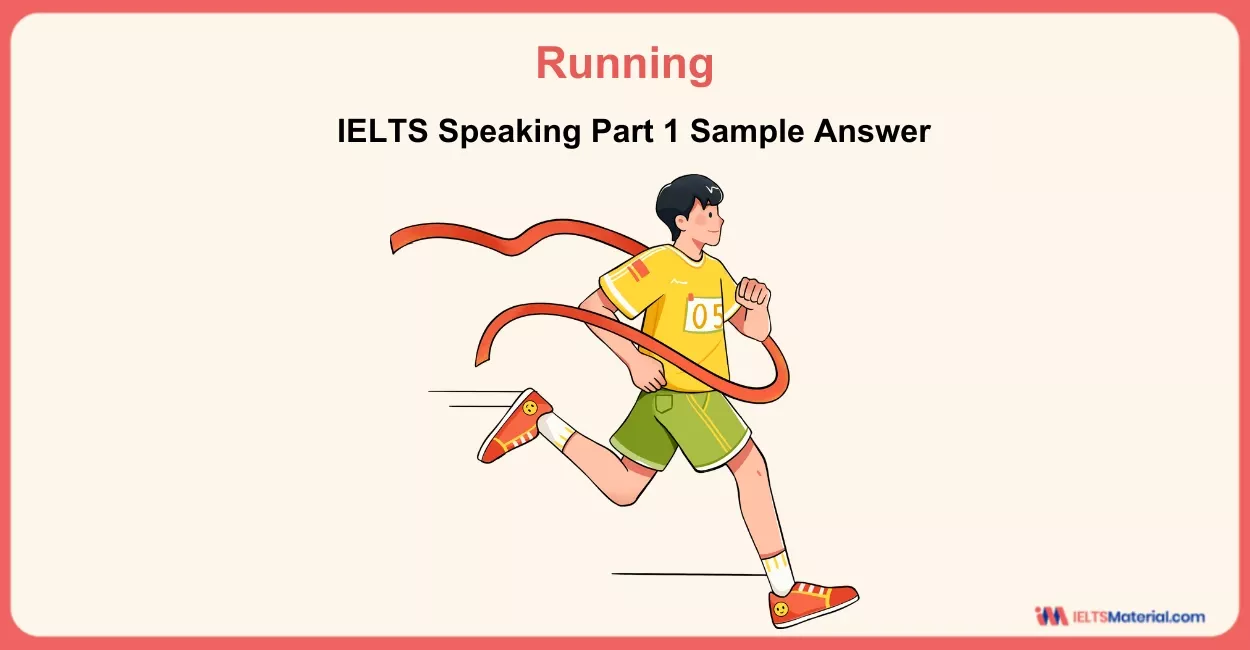
Prity Mallick
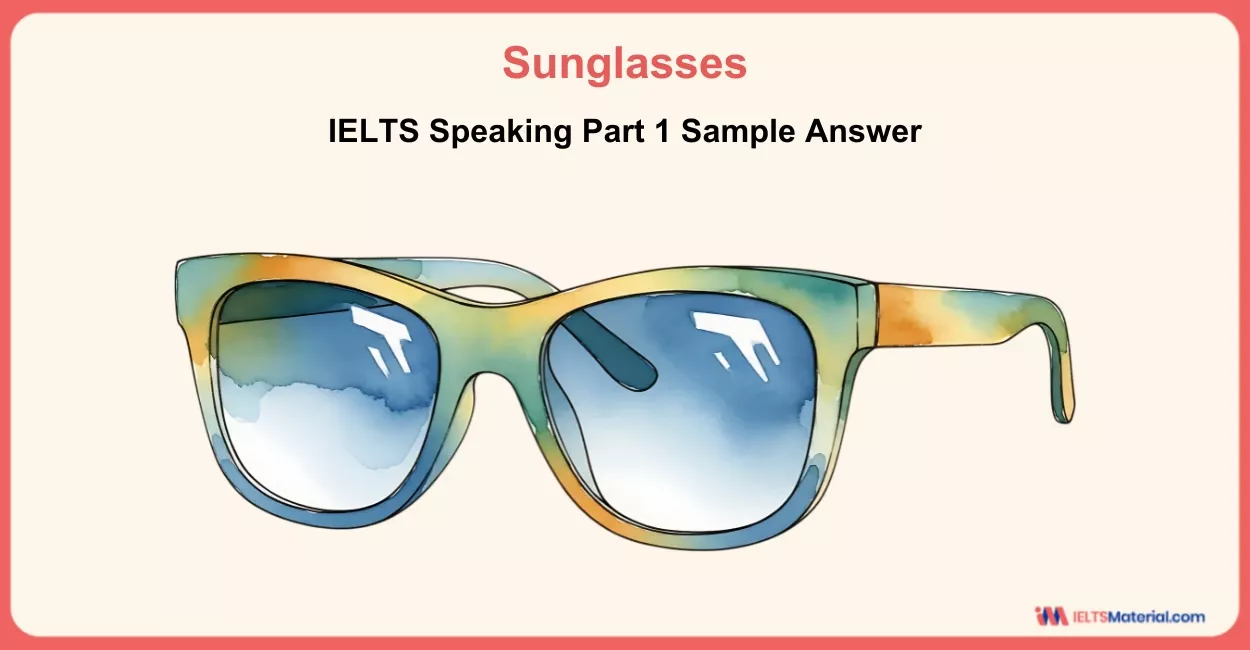
Nehasri Ravishenbagam
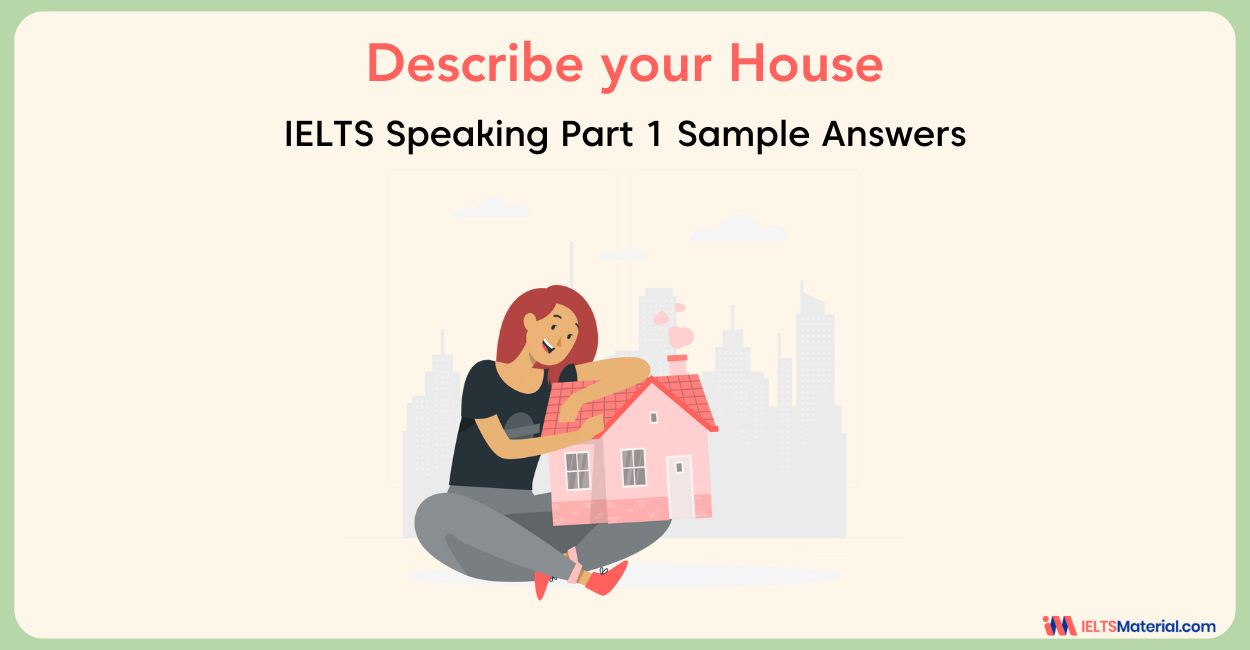
Kasturika Samanta
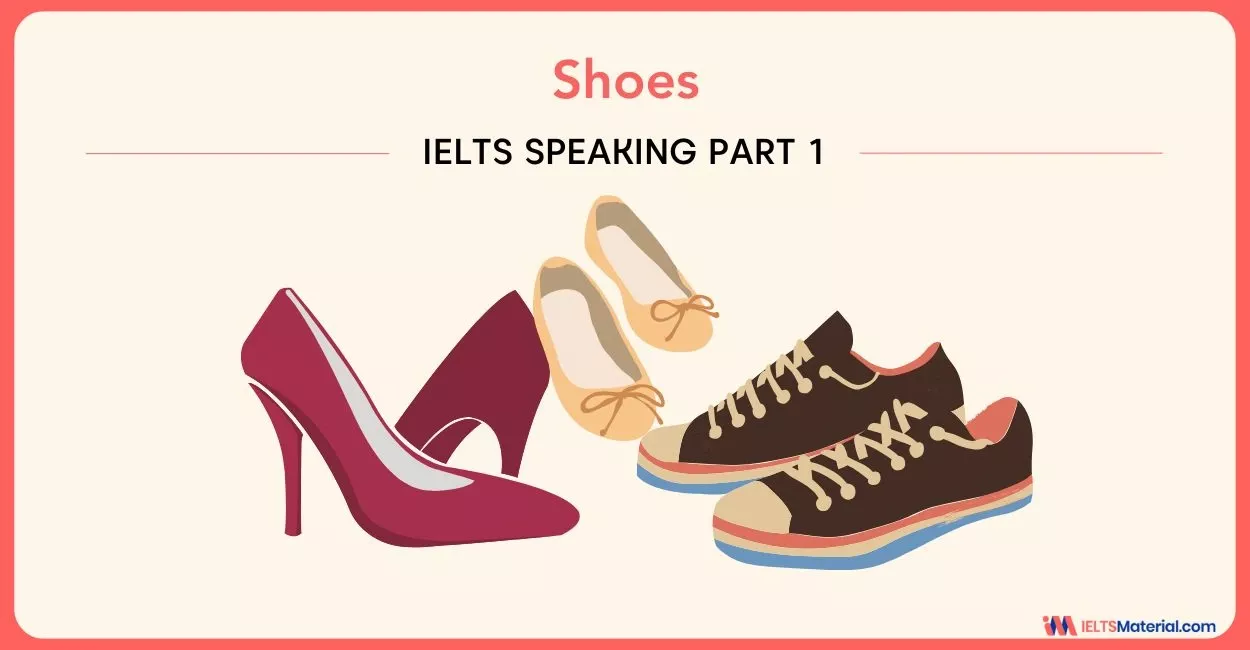
Nehasri Ravishenbagam
Recent Articles

Nehasri Ravishenbagam

Nehasri Ravishenbagam

Kasturika Samanta

Kasturika Samanta
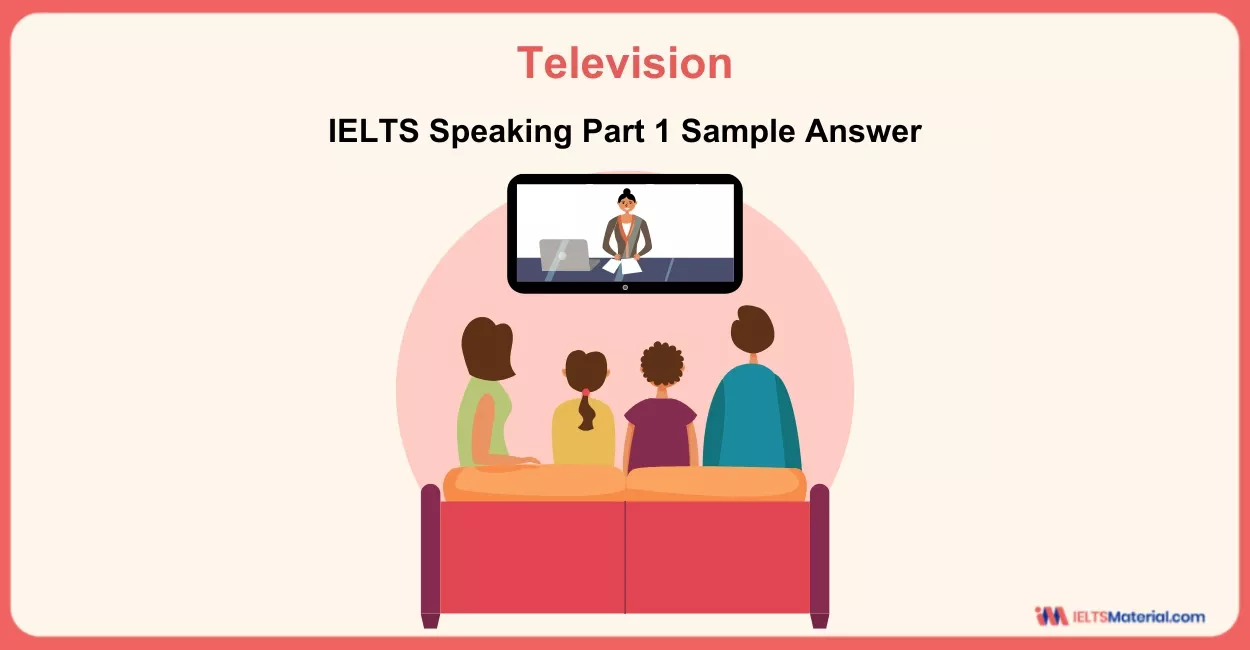



Post your Comments